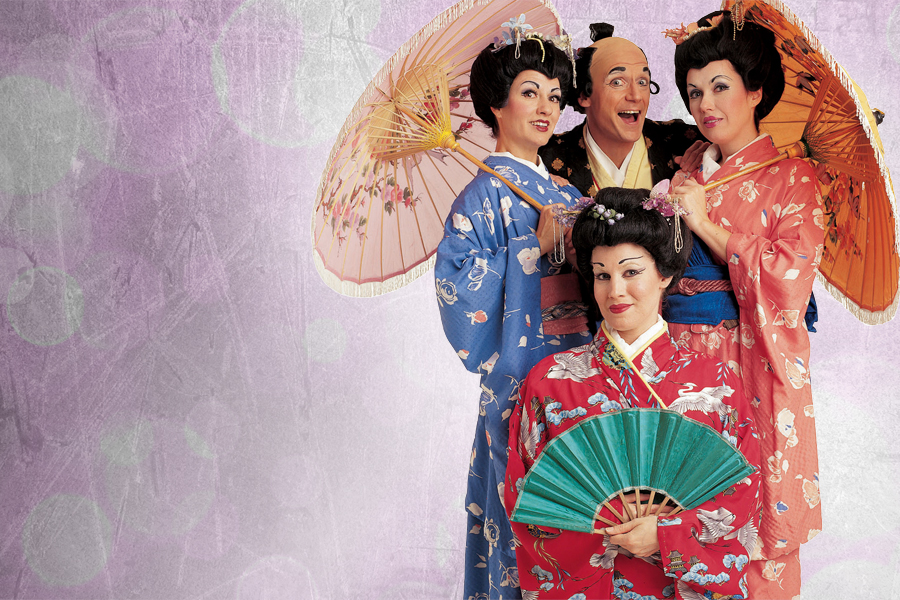Gilbert and Sullivan’s fictitious town of Titipu, Japan, is coming next week to the Rodeheaver stage. On March 7, 8 and 9 at 7 p.m., the New York Gilbert and Sullivan Players will perform The Mikado as part of the next installment of this semester’s Concert, Opera and Drama Series.
According to TheatreHistory.com, the setting of the story centers in the fictitious city of Titipu, Japan. The plot begins with the introduction of many of the main characters, including Nanki-Poo, Katisha, Yum-Yum, Ko-Ko and Pooh-Bah. Nanki-Poo is the son of the Mikado, the emperor of Japan. In order to avoid marrying the ugly, old Katisha, Nanki-Poo disguises himself and flees the palace.
The plot heightens when Nanki-Poo falls in love with Yum-Yum, a schoolgirl who is already engaged to Ko-Ko, one of the men in the town. The remainder of the opera resolves the conflicts involving Nanki-Poo’s secret identity, a complicated love story, a mandated execution, a heartless law of burying a widow alive and the appeasement of Katisha’s jealousy.
Both the script and the lyrics of The Mikado were written by W.S. Gilbert, while the music was composed by Arthur Sullivan.
“Gilbert and Sullivan productions feature a balanced combination of singing and spoken dialogue,” said Dr. Darren Lawson, dean of the School of Fine Arts and Communication. This opera saw its first production in London in March 1885 and has been made into several movies.
Lawson said the genre of this production is a comic operetta. According to britannica.com, comic operettas are “musical plays with light subject matter and happy endings.” The story of The Mikado transforms a potential Romeo and Juliet tragedy into a “happily ever after” comedy.
The Mikado has been performed at BJU in years past. According to Lawson, the performance was staged in the fall of 2000 by the New York Gilbert and Sullivan Players, not in Rodeheaver but in the FMA. Lawson said he believes the Rodeheaver stage is more conducive to the opera’s performance.
Unlike the last few operas at BJU, Lawson said this opera will not include any BJU students, faculty or staff. “I decided to give our choral and instrumental forces a break this year since we had a huge opera last year, Il Trovatore, and have another huge opera next year, Aida,” he said.
If students want to reap the full experience of the opera, Lawson suggests that students read a synopsis of the plot and listen to short excerpts of the music. Because the opera is in English, students can focus on the plot and the comical characters and situations rather than words on a screen. “Come prepared to have a great time with the show,” he said.
“The Mikado is a fun story set to music.”





















































